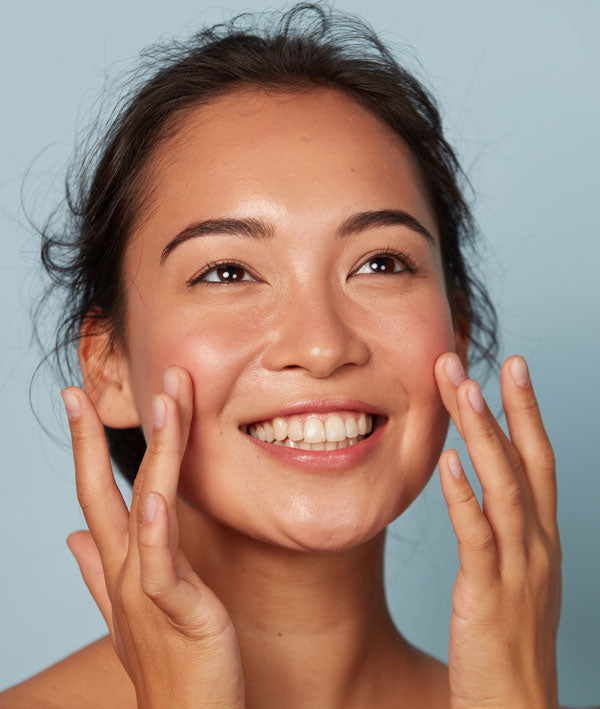In the ever-evolving world of skincare, new ingredients are constantly touted as the next miracle solution. But when it comes to powerhouse actives with real research-backed benefits, CoQ10 and retinol remain two of the most respected names in the game. Both are known for their ability to combat signs of aging, improve skin texture, and support overall skin health—but they work in very different ways.
So, which one is better? The answer depends on your skin type, concerns, and tolerance. In this article, we break down the differences between CoQ10 and retinol, their benefits, and how to decide which one belongs in your skincare routine.
What Is CoQ10 and What Does It Do for Your Skin?
Coenzyme Q10 (CoQ10) is a naturally occurring antioxidant found in every cell of your body. It plays a critical role in cellular energy production and protects cells from oxidative stress caused by free radicals. As we age, our natural levels of CoQ10 decline, leading to slower skin regeneration and reduced defense against environmental damage.
When used topically, CoQ10 offers several skin benefits:
-
Fights free radicals to help prevent premature aging
-
Energizes skin cells, improving tone and texture
-
Reduces the appearance of fine lines and wrinkles
-
Supports collagen and elastin production
-
Improves skin's firmness and elasticity
CoQ10 is especially beneficial for those with dull, tired-looking skin or early signs of aging. It's also incredibly gentle—making it suitable for all skin types, including sensitive or compromised skin.

What Is Retinol and How Does It Work?
Retinol is a derivative of vitamin A and widely considered the gold standard in anti-aging skincare. Unlike antioxidants like CoQ10 that protect and support the skin, retinol actively stimulates cell turnover and collagen production. It’s a potent active that can dramatically improve skin texture, tone, and clarity over time.
Topical retinol offers the following benefits:
-
Reduces fine lines and wrinkles
-
Fades hyperpigmentation and sunspots
-
Unclogs pores and treats acne
-
Improves skin texture and brightness
-
Stimulates collagen synthesis
Retinol is powerful, but it also comes with a risk of irritation. Common side effects include dryness, redness, peeling, and increased sensitivity—especially when first introduced or if used too frequently.
Key Differences Between CoQ10 and Retinol
While both CoQ10 and retinol offer anti-aging benefits, they function very differently on the skin. Understanding their core distinctions can help you make an informed choice:
| Feature | CoQ10 | Retinol |
|---|---|---|
| Function | Antioxidant and cell energizer | Cell turnover and collagen stimulator |
| Mechanism | Protects and repairs skin | Actively renews skin cells |
| Ideal For | Prevention, hydration, barrier support | Correction of aging signs, acne, pigmentation |
| Side Effects | Rare to none | Common (dryness, irritation) |
| Sun Sensitivity | No | Yes (requires SPF) |
| Skin Types | All skin types, especially sensitive | Normal to oily; avoid if overly sensitive |
CoQ10 is better for defense and support, while retinol is a more aggressive treatment for visible concerns.
Which Is Better for Anti-Aging?
When it comes to reducing visible signs of aging, retinol is the heavyweight champion. It directly targets wrinkles, uneven tone, and loss of firmness by increasing skin cell turnover and stimulating collagen production. Countless studies support its long-term effectiveness for reversing signs of photoaging.
However, CoQ10 plays a crucial supporting role in preventing premature aging. As an antioxidant, it neutralizes free radicals and supports mitochondrial function, helping skin stay resilient and youthful for longer. It’s especially valuable in your 20s and 30s when prevention is the focus, or if your skin is too sensitive for retinoids.
The takeaway:
-
If your goal is to reverse deep wrinkles, sun damage, or acne scars, retinol delivers faster, more dramatic results.
-
If your goal is to maintain healthy, radiant skin and prevent early aging, CoQ10 is an excellent daily staple.
Which Ingredient Is Better for Sensitive Skin?
CoQ10 is far better tolerated by sensitive skin. It's gentle, non-irritating, and soothing, making it a great option for individuals with rosacea, eczema, or compromised skin barriers. CoQ10 can even help calm inflammation and support recovery after more aggressive treatments.
Retinol, on the other hand, can trigger irritation, particularly during the adjustment phase (commonly known as the “retinol purge”). People with sensitive or dry skin often struggle to tolerate it, especially without the right supporting skincare.
If you’re prone to redness, flaking, or have ever had a reaction to retinoids, CoQ10 is likely the safer bet.
Can You Use CoQ10 and Retinol Together?
Yes—you can and often should use CoQ10 and retinol together. They make a powerful pairing when formulated correctly and applied thoughtfully.
Here’s why they complement each other:
-
Retinol accelerates cell turnover, revealing newer skin
-
CoQ10 defends new cells from oxidative damage
-
CoQ10 can help mitigate irritation caused by retinol use
-
Both support collagen and elastin but in different, synergistic ways
How to layer them:
-
Apply retinol first on clean, dry skin at night (start 2–3x/week)
-
Follow with a serum or moisturizer containing CoQ10 to calm and protect
-
Always wear SPF the next morning—retinol increases sun sensitivity
If you’re new to actives or have reactive skin, you may want to alternate nights or start with a lower strength of retinol before layering.
When to Choose CoQ10 Over Retinol (and Vice Versa)
Still not sure which one is right for you? Here are some quick guidelines based on specific skincare goals and needs:
Choose CoQ10:
-
You havesensitive, reactive, or very dry skin
-
You’re in your 20s or early 30s and want to start anti-aging prevention
-
You want an antioxidant-rich, barrier-supporting serum
-
You’re pregnant or breastfeeding (retinol is not recommended)
-
You use actives like acids or peels and need extra calming support
Choose Retinol:
-
You havefine lines, wrinkles, or sun damage you want to reverse
-
You’re dealing with adult acne or clogged pores
-
Your skin is normal to oily and can tolerate stronger actives
-
You’re in your 30s, 40s, or beyond, looking to firm and resurface
-
You’re already using SPF daily and have a consistent routine
Best-case scenario? Use both—with CoQ10 as your daily antioxidant and retinol as your nighttime treatment, creating a complete and balanced anti-aging regimen.
CoQ10 and retinol are both valuable additions to your skincare arsenal, but they serve very different purposes. Retinol is your go-to for correction, helping to reverse visible signs of aging and stimulate skin renewal. CoQ10 is your protector, defending against damage, energizing skin cells, and keeping your barrier strong.
Whether you choose one or both depends on your skin’s unique needs, your sensitivity level, and your long-term skincare goals. For some, the gentle daily support of CoQ10 is enough. For others, the transformative power of retinol is worth the adjustment period. And for many, a combination of the two offers the best of both worlds.





